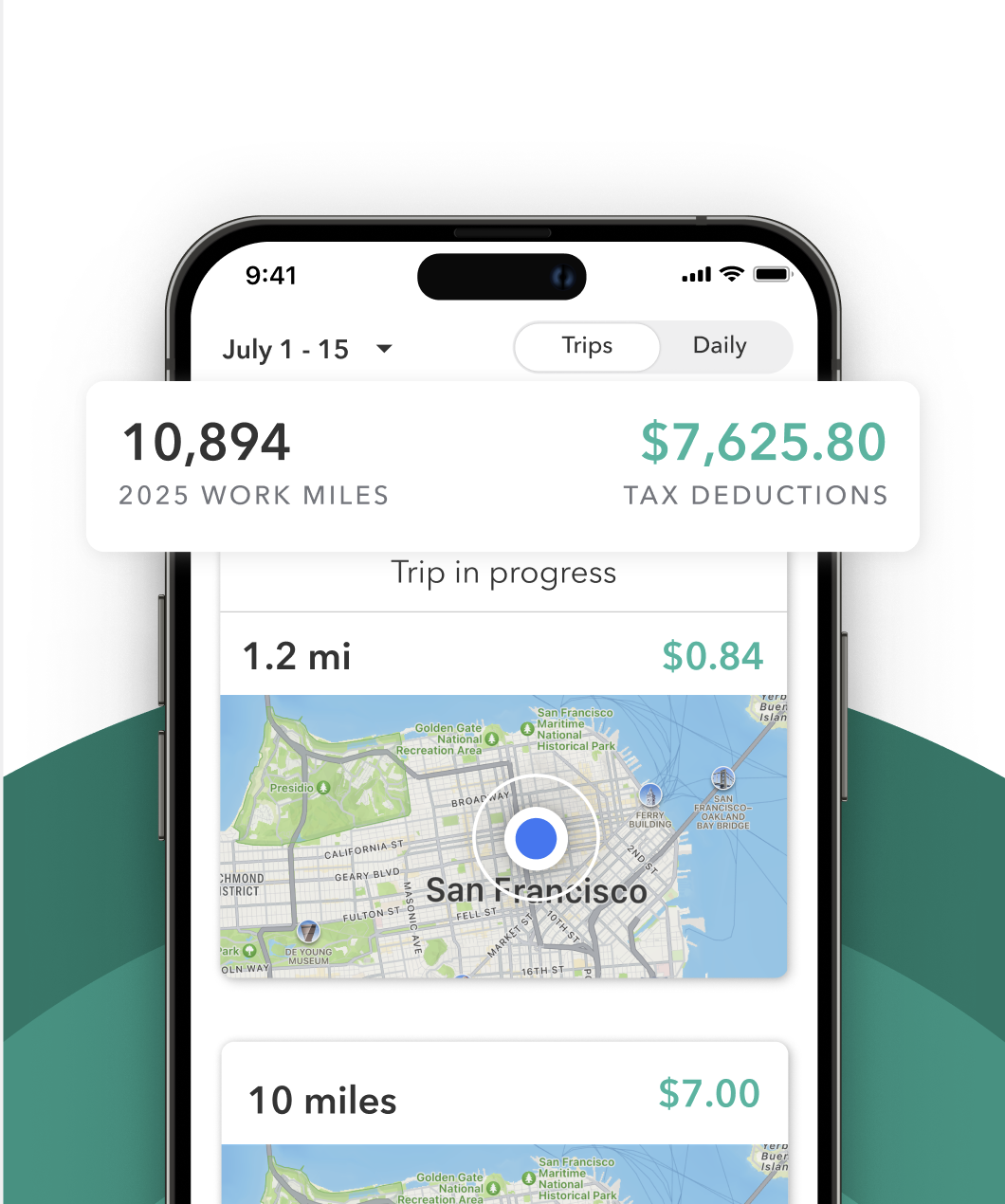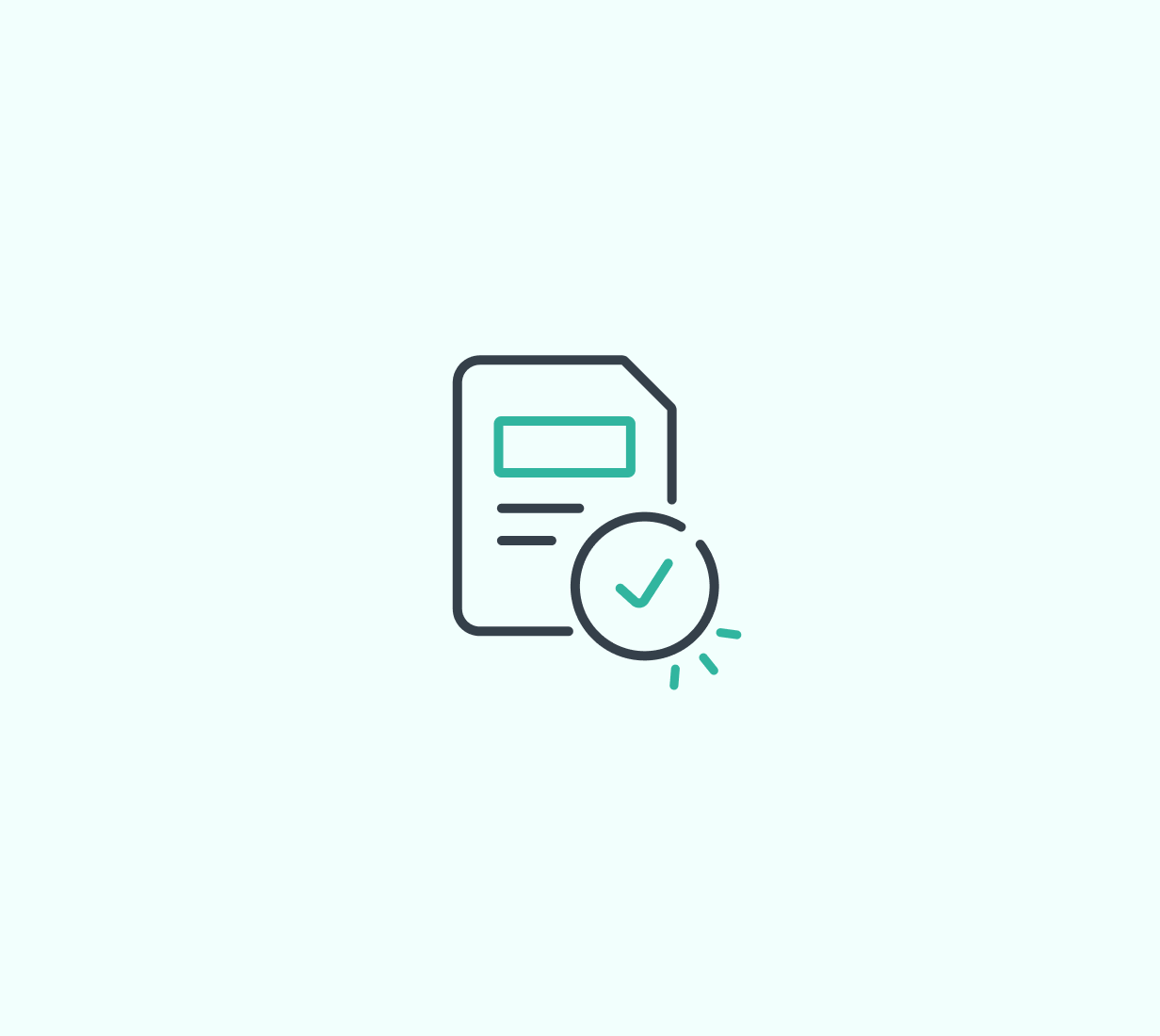As an Instacart shopper, you’re classified as an independent contractor. That means you can write off business expenses to lower your taxable income and that can lead to serious savings. But not all deductions are created equal. Instacart involves a unique mix of driving, shopping, and delivering, so your eligible write-offs will differ from drivers on other platforms.
This guide breaks down the top tax deductions for Instacart shoppers, explains how to track them, how to claim them, and the most common mistakes to avoid.
Mileage and vehicle expenses
Driving is a core part of working for Instacart, so your vehicle-related expenses are often your largest deduction.
Standard mileage rate
The 2025 IRS mileage rate is 70 cents per mile. This rate is meant to cover all the costs of operating your vehicle for business: gas, maintenance, insurance, depreciation, and more.
Pros:
- Easy to use: multiply your business miles by the IRS rate.
- Often gives you the highest deduction if you drive a lot.
Cons:
- You must track every business mile with a mileage log.
- You can’t use this method if you’ve claimed actual expenses for the same vehicle in prior years under certain conditions.
Actual expense method
With the actual expense method, you write off the actual cost of using your vehicle for Instacart.
Expenses you can deduct:
- Gas
- Oil changes and maintenance
- Tires
- Repairs
- Insurance
- Vehicle registration fees
- Lease payments or depreciation
You’ll need to track your total car expenses and determine what percentage of your driving was for Instacart.
Example: If 60% of your miles were for Instacart, you can deduct 60% of your total car costs.
Expenses you can deduct regardless of method
Some car-related expenses are deductible no matter which method you choose:
- Parking fees while shopping or delivering
- Tolls on delivery routes
Electric vehicle write-offs
Electric vehicles are still eligible for the standard mileage rate, which is a wonderful advantage to them, as they generally cost less to operate and maintain. You may also qualify for federal EV tax credits or be able to deduct a portion of your charging costs if you’re using the actual expense method.
Platform fees and commissions
Instacart shoppers are paid per batch, but the company does take a commission from the total the customer pays. This platform cut, along with any service or processing fees, are tax-deductible.
Check your Instacart earnings breakdowns for a summary of how much the platform retained. As long as it's money Instacart took out as part of your business operations, it's deductible.
Phone and data plan
You rely on your phone to receive orders, navigate, communicate with customers, and track earnings. That makes a portion of your phone and data bill deductible.
Only the percentage used for work counts. If you use your phone 70% for personal use and 30% for Instacart, only 30% of your costs are deductible. This includes:
- Monthly service fees
- Data plans
- Phone accessories like mounts and chargers
Delivery and shopping supplies
Instacart shoppers often need gear that isn’t required on other platforms. These expenses are deductible:
- Insulated bags and totes to keep groceries cold or hot
- Rubber floor mats for protecting your car during deliveries
- Reusable bags (when required)
- Phone mounts, screen protectors, and car chargers
- Carts or bins to help transport orders from store to vehicle
Car cleaning
Because you’re regularly transporting groceries, you can deduct a portion of:
- Car washes
- Interior detailing
- Cleaning supplies used to maintain your vehicle for work
Roadside assistance
AAA, roadside coverage from your insurer, or other services are partially deductible if they help you stay on the road. Just like other vehicle costs, only deduct the business-use portion.
Health insurance premiums
If you’re self-employed and pay for your own health insurance, you may be able to deduct your premiums. This only applies if you’re not eligible for a plan through a spouse or employer.
Paid tools and subscriptions
Any paid tools that help you do your job more efficiently are deductible. That could include:
- Tax software or accounting tools
- Mileage and expense tracking apps
- Budgeting or business planning tools used for your work
Background checks or application fees
If you paid for a background check or onboarding fee to begin working for Instacart, that cost is deductible.
How to track your tax deductions
The IRS requires documentation for any deduction you claim. That means mileage logs, receipts, invoices, or statements. Tracking year-round makes tax season painless and helps you avoid missing out on valuable write-offs.
You should:
- Track your mileage with a mileage tracking app for Instacart
- Save receipts or take photos of purchases
- Categorize your expenses regularly
- Keep digital or physical records organized by date and type
How to claim your tax deductions
When you file your taxes, you’ll typically complete:
- Schedule C to report your income and expenses
- Schedule SE to calculate self-employment tax
- Form 1040 as your main tax return
You'll input your deductions on Schedule C. The more accurately you report, the more you can lower your taxable income.
Common mistakes Instacart shoppers make
- Not tracking mileage: Forgetting to log miles is one of the costliest mistakes.
- Mixing business and personal expenses: Always separate your Instacart-related spending from personal use.
- Overlooking gear and supplies: Don’t forget about insulated bags, chargers, and other tools.
- Guessing instead of documenting: Estimates don’t count in an audit. Keep the receipts.
Claiming all your eligible deductions is one of the best ways to keep more of what you earn. As an Instacart shopper, understanding what you can write off and keeping good records can lead to thousands in tax savings each year.











